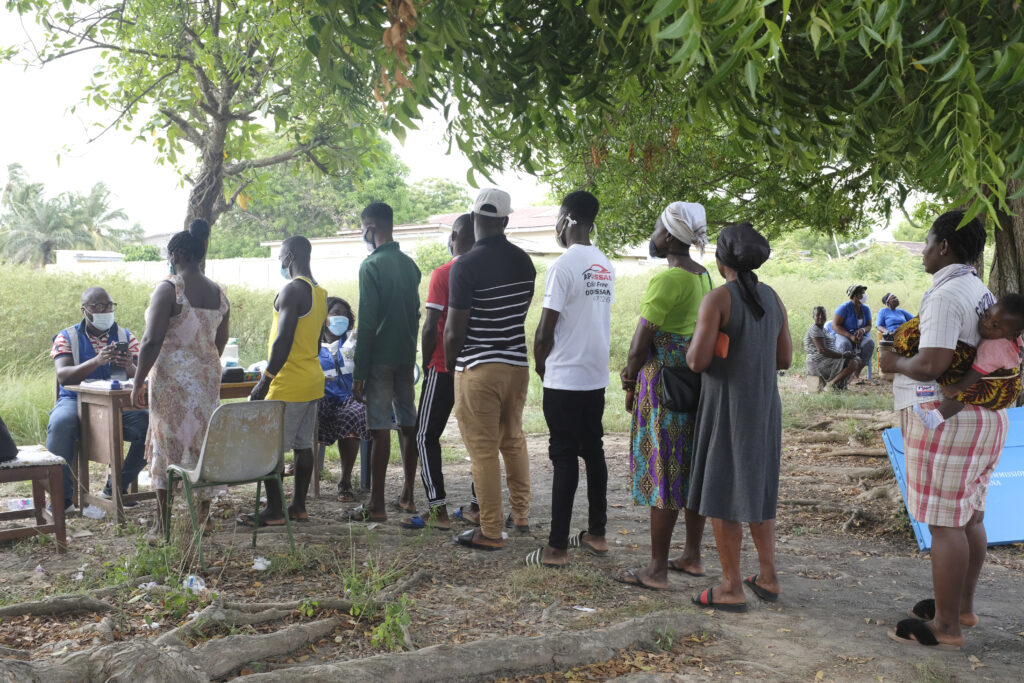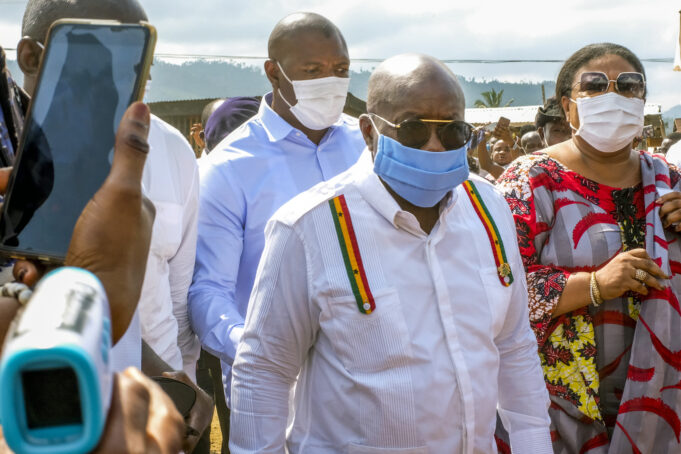The Republic of Ghana came through another successful presidential vote as Nana Akufo-Addo won reelection with 51.59 percent of the vote, allowing him four more years to lead the West African nation.
“By the power invested in me as the chairperson of the Electoral Commission of Ghana, it is my duty and honor to declare Nana Addo Dankwa Akufo-Addo, the president elect,” said Jean Mensa, announcing results Dec. 9.
She shared the results following a tight race between President Akufo-Addo and the governing National Patriotic Party and former President John Mahama and the National Democratic Congress. Mr. Mahama lost his own reelection bid to Mr. Akufo-Addo in 2016 after serving one term.

“It could be that tendency for an incumbent president who has just secured a second term in office to take it easy and relax because there’s nothing more to lose or prove,” said President Akufo-Addo to supporters in his victory speech. “I am of a different character,” he said.
The president said his priorities are reversing the effects of Covid-19 and rebuilding an economy devastated by the pandemic.
The second term will be President Akufo-Addo’s final term under Ghana’s constitutional term limits. He called on his governing party and the second place NDC to work in unity for the good of the country.
Mr. Mahama, the election loser, won 47.3 percent of the electorate and is contesting the results announced by the election commissioner.
In remarks Dec. 10, a leading NDC minority member of parliament, Haruna Iddrisu, charged electoral malfeasance in some areas of the country. Mr. Iddrisu said the electoral commission chair ignored requests from Mr. Mahama that voting discrepancies be addressed before final counts were announced.
According to the election commission, 79 percent of registered voters turned out for presidential and parliamentary elections at 38,622 polling stations across the country.
The results followed a prickly vote where Mr. Akufo-Addo and Mr. Mahama claimed at different times to lead based on independent tallies.
Although Ghana’s elections were expected to be relatively peaceful, the Ghanaian Police Service recorded more than 60 incidents on Election Day including violence that left five people dead, reported Al Jazeera.
The West African nation has been lauded for smooth power transitions and a reputation as one of the most stable democracies on the African continent.
As the second largest economy in the region after Nigeria, Ghana’s elections were of particular interest with the country reeling from the adverse effect of Covid-19 on the economy.
According to a September-October pre-election survey conducted by the non-profit Ghana Center for Democratic Development, the mood of the country remained “cautiously optimistic” about the future though Covid-19 “significantly worsened” the already difficult economic circumstances of many Ghanaians.
The center said among those polled, the performance of the Akufo-Addo government was broadly positive.
Commentators expected a close race and attributed the slight edge for the incumbent president to management of the coronavirus crises that included free water and subsidizing electricity for households.
“He has brought hope to many Ghanaians through his social interventions. It’s been a difficult year,” said 45-year-old businesswoman Evelyn Amey to Reuters.
However, the public was less impressed with the administration’s handling of inflation, bridging inequality, and curbing corruption.
The election was held with 47 percent of Ghanaians believing the country was heading in the “right direction,” while almost the same proportion felt the country was heading in the “wrong direction.”
Ghana like other nations lost economic gains made in recent years because of Covid-19. The pandemic interrupted global investment and demand for Ghana’s major exports of oil and cocoa.
Like previous years, participation was robust with over 17 million voters—including nearly three million first time voters who lined up in face masks and social distanced to choose between 12 candidates vying for the presidency.
Despite the number of candidates, most locals were expected to choose Mr. Akufo-Addo or Mr. Mahama. Their parties have dominated and alternated in ruling Ghana for the last 28 years.
In 1992 the country transitioned from military rule to multiparty elections under the late former President Jerry John Rawlings who died in November.
To Ghana’s credit and sign of political maturity, prior to Election Day President Akufo-Addo and Mr. Mahama signed an agreement committing to resolve any electoral disputes in the courts rather than in the streets.
The move was seen as a positive step in comparison to elections in nearby Guinea and Cote d’Ivoire marred by violence and turmoil.
In Guinea, President Alpha Conde won a third term after revising the Constitution to allow for a third term. Dozens of people were killed by security forces protesting a referendum on the constitutional change.
In the aftermath of Cote d’Ivoire presidential elections, an estimated 6,000 Ivorians fled into neighboring countries due to election-related tensions. The UN High Commissioner for Human Rights Michelle Bachelet urged all sides to refrain from incitement to violence and to engage in meaningful dialogue. She cautioned against repeating bloodshed experienced in 2011 elections fraught with killings and displacement.
In Ghana, international observers included former Liberian President Ellen Johnson-Sirleaf and the European Union Election Observer Mission invited by the Ghanaian authorities. The EU deployed 80 observers countrywide and issued a preliminary report saying the elections were fair and free.
“The 2020 elections were organized in an efficient and transparent manner, and voters participated freely,” said the EU statement. It described the elections as competitive where contestants could campaign without hindrance. It said a “few isolated violent incidents occurred,” and numerous stakeholders expressed deep apprehension about the possible use of vigilante groups by political parties.
The report criticized the ruling party about unregulated political financing, misuse of state resources and numerous instances of “vote-buying.” Ghana’s vibrant and diverse media provided voters with sufficient information on both major competing parties and their candidates. However, state media favored the ruling party and its presidential candidate who received extensive coverage at government activities. The main opposition party frequently expressed a lack of confidence in the electoral commission.
“Ghanaians voted freely, and while there were isolated violent incidents on Election Day and during the campaign, fears of violence and vigilantism, fortunately, did not materialize,” said Javier Nart, chief observer and a member of the European parliament from Spain.













